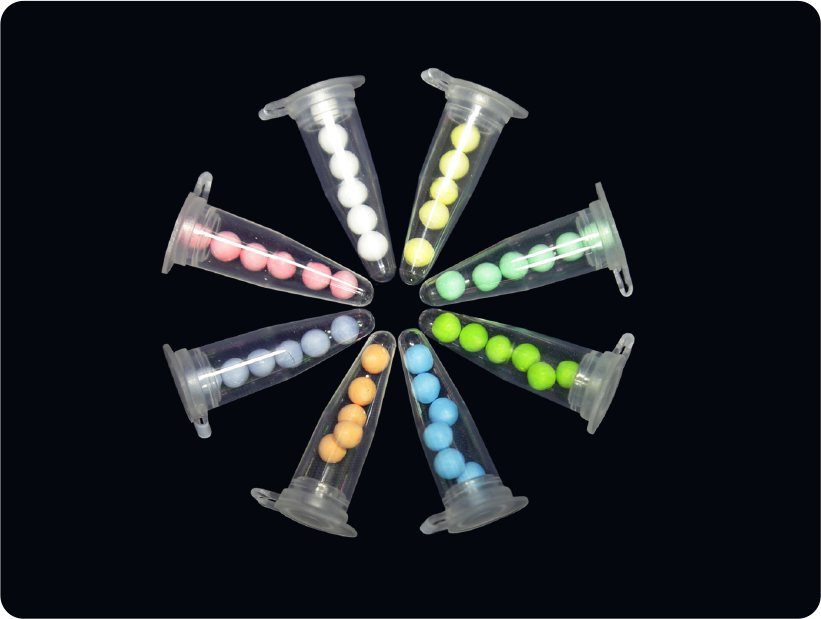
Lyophilization

Lyophilization is the process of removing water from a sample at low temperature. This low-temperature dehydration process maximizes product or sample stability and shelf life, maintains chemical or biological function, and enables easier transportation and storage compared to a cold chain. Lyophilization process has applications in assay kit development, where it enables room-temperature shipping and storage of reagents and complete assays.
Advantages of lyophilization
• Enhancing the stability of a dry powder as well as the product stability in a dry state
• Save costs with simplify shipping and packaging
• Retain the activity of the original formula by removing water without having to heat the product excessively
• Dissolution of reconstituted product (rapidly and easily)
• Lyophilized reagents that are easy to match with the one-step reaction design
• Simplify assay setup
• Increase assay robustness and reliability
• Reduce the risk of sample contamination
Reagent Recipe Design
We provide the reagent formulation design, including biochemistry diagnosis reagents, immunoassay diagnosis reagents, and molecular biology diagnosis reagents, which can be in liquid format or dry format.
The reagent formulation detection system should be designed for different detection system, including:
• Optical detection
• Electrochemical detection
• Lateral flow strip
